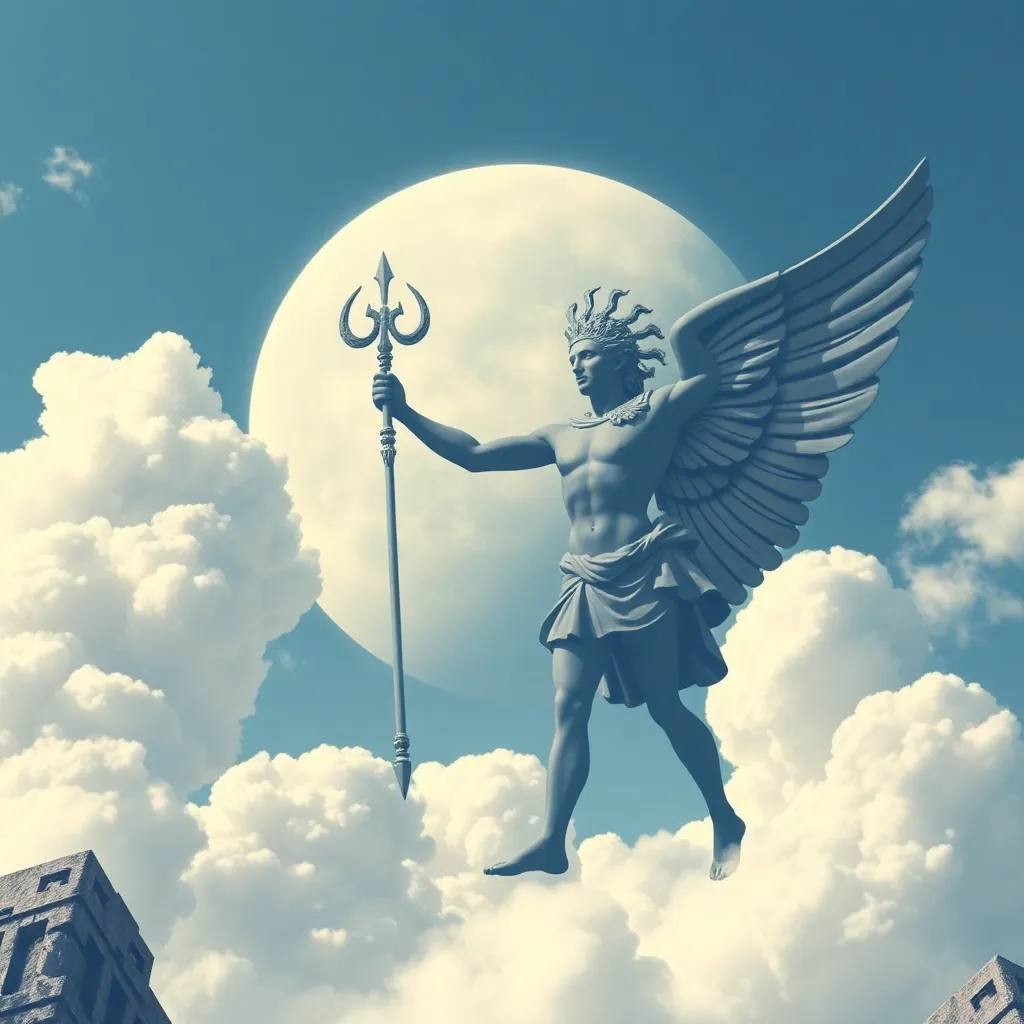The Olympians and Their Influence on Modern Psychology: Archetypes in Myth
I. Introduction
In psychology, archetypes are universally understood symbols or themes that recur across literature, art, and mythology, representing fundamental human motifs of experience. These archetypes serve as templates for human behavior and personality traits, offering insight into the collective unconscious. Greek mythology, with its pantheon of gods and goddesses known as the Olympians, provides rich narratives that exemplify these psychological archetypes. This article aims to explore the connection between these mythological figures and their corresponding archetypes, shedding light on their relevance in modern psychological thought.
II. The Concept of Archetypes
A. Historical background of archetypes in psychology
The concept of archetypes has its roots in ancient philosophy and has evolved into a significant aspect of modern psychology. Archetypes were notably advanced by Carl Jung, who proposed that they are innate, universal symbols shared across cultures, embedded in the human psyche.
B. Carl Jung’s contributions to archetypal theory
Carl Jung introduced the idea of the collective unconscious, a part of the unconscious mind that is shared among beings of the same species. He emphasized that archetypes emerge from this collective unconscious, influencing behaviors, thoughts, and emotions. Jung identified several key archetypes, including the Hero, the Shadow, the Anima/Animus, and the Wise Old Man, which can be seen reflected in cultural narratives, including those found in Greek mythology.
C. The significance of archetypes in understanding human behavior
Understanding archetypes allows psychologists and individuals to identify patterns in behavior and thought processes. Archetypes provide a framework for analyzing personality and motivations, facilitating deeper insights into individual and collective human experiences.
III. Overview of the Olympians
A. Introduction to the major Olympian gods and goddesses
The Olympians are a group of twelve deities who reside on Mount Olympus and preside over various aspects of life and nature. Each deity embodies distinct qualities and represents different archetypal themes.
- Zeus: The king of the gods, representing authority and governance.
- Hera: The queen of the gods, symbolizing marriage and fidelity.
- Athena: The goddess of wisdom and strategy, embodying intellect and warfare.
- Apollo: The god of the sun, music, and prophecy, representing creativity and enlightenment.
- Other Olympians: Including Poseidon, Demeter, Artemis, Hermes, Ares, Aphrodite, Hephaestus, and Dionysus, each with their unique narratives and attributes.
B. Characteristics and narratives associated with each figure
Each Olympian is associated with a wealth of myths that illustrate their powers, relationships, and conflicts. These narratives not only define the gods’ personalities but also reflect human experiences, emotions, and ethical dilemmas.
IV. Archetypal Analysis of the Olympians
A. Identification of key archetypes represented by the Olympians
The Olympians embody several key archetypes that have significant implications in psychology:
- The Hero: Represented by figures like Hercules, who exemplifies bravery and the quest for identity.
- The Caregiver: Seen in characters like Demeter, who represents nurturing and compassion.
- The Ruler: Exemplified by Zeus, who represents authority and order.
B. How these archetypes manifest in modern psychology
These archetypes resonate in contemporary psychological frameworks, influencing therapeutic practices and personal development. For instance, understanding the Hero archetype can aid individuals in their journey of self-discovery and resilience in the face of challenges.
V. The Influence of Olympian Archetypes on Human Behavior
A. Case studies and examples in contemporary society
Archetypes derived from Greek mythology can be observed in various aspects of modern culture. For example, the Hero’s journey is a prevalent theme in literature and film, inspiring individuals to confront their own obstacles.
B. The relevance of mythological archetypes in shaping personality and identity
Individuals often identify with specific archetypes, influencing their values, relationships, and life choices. Recognizing these archetypal influences can enhance self-awareness and promote personal growth.
C. The impact of these archetypes on mental health and therapy practices
Therapists often employ archetypal themes to help clients understand their narratives and identify patterns in their behavior, fostering healing and transformation.
VI. The Integration of Myth in Modern Psychological Practices
A. Use of mythological references in psychotherapy and counseling
Therapists may integrate mythological references to help clients connect with their inner archetypes. By invoking stories of the Olympians, clients can explore their own struggles and aspirations.
B. The role of storytelling and narrative therapy in understanding archetypes
Narrative therapy emphasizes the importance of personal storytelling. By framing their experiences in the context of mythological archetypes, individuals can gain new perspectives and re-author their life stories.
C. Examples of therapeutic techniques inspired by Greek mythology
Techniques such as guided imagery, role-playing, and creative expression can be used to explore archetypal themes, allowing clients to engage with their inner myths and foster healing.
VII. Critiques and Limitations of Using Myth in Psychology
A. Potential risks of overgeneralization or misinterpretation
While archetypes can provide valuable insights, there is a risk of oversimplifying complex human experiences or misinterpreting mythological narratives, which may lead to ineffective therapy.
B. Cultural considerations and the relevance of other mythological systems
Psychologists must consider the cultural context of clients, as not everyone may resonate with Greek mythology. Other mythological systems can offer equally valuable archetypes and insights.
C. The balance between myth and empirical evidence in psychological practice
It is essential to balance the use of mythological concepts with empirical evidence and scientific rigor to ensure effective psychological interventions.
VIII. Conclusion
A. Summary of key points discussed
This exploration of the Olympians and their archetypal significance reveals the profound connections between mythology and psychology. The archetypes represented by the Olympians provide a framework for understanding human behavior and personality.
B. The enduring legacy of the Olympians in psychological thought
The Olympians continue to influence psychological thought, offering timeless narratives that resonate with fundamental human experiences.
C. Future directions for research and exploration of myth in psychology
Future research could explore the integration of diverse mythological systems into psychological practice, as well as the potential of archetypes in fostering mental health and well-being.




